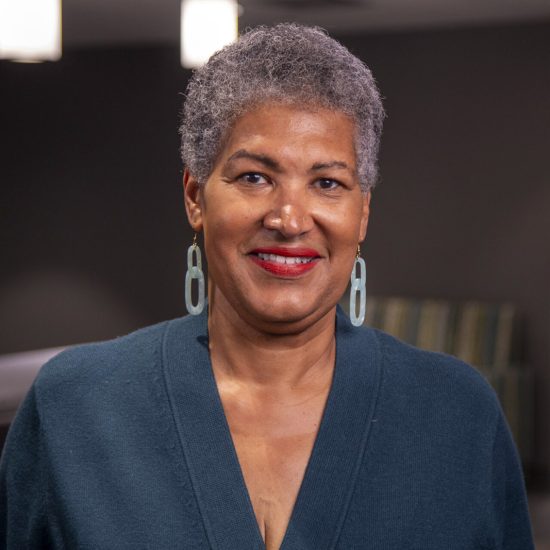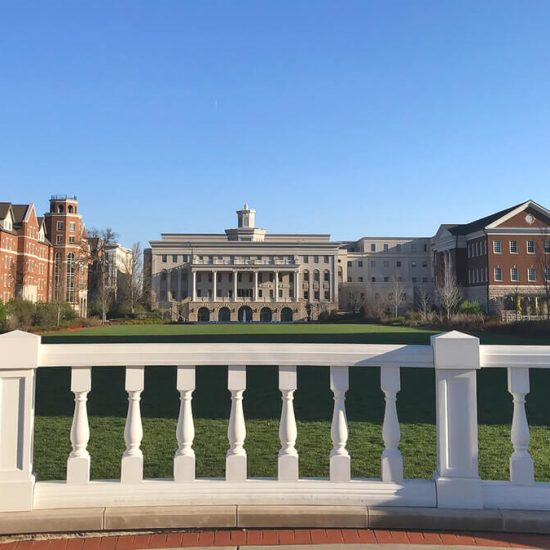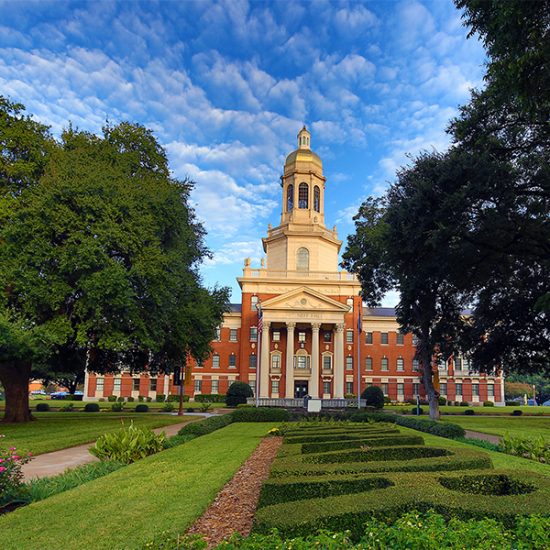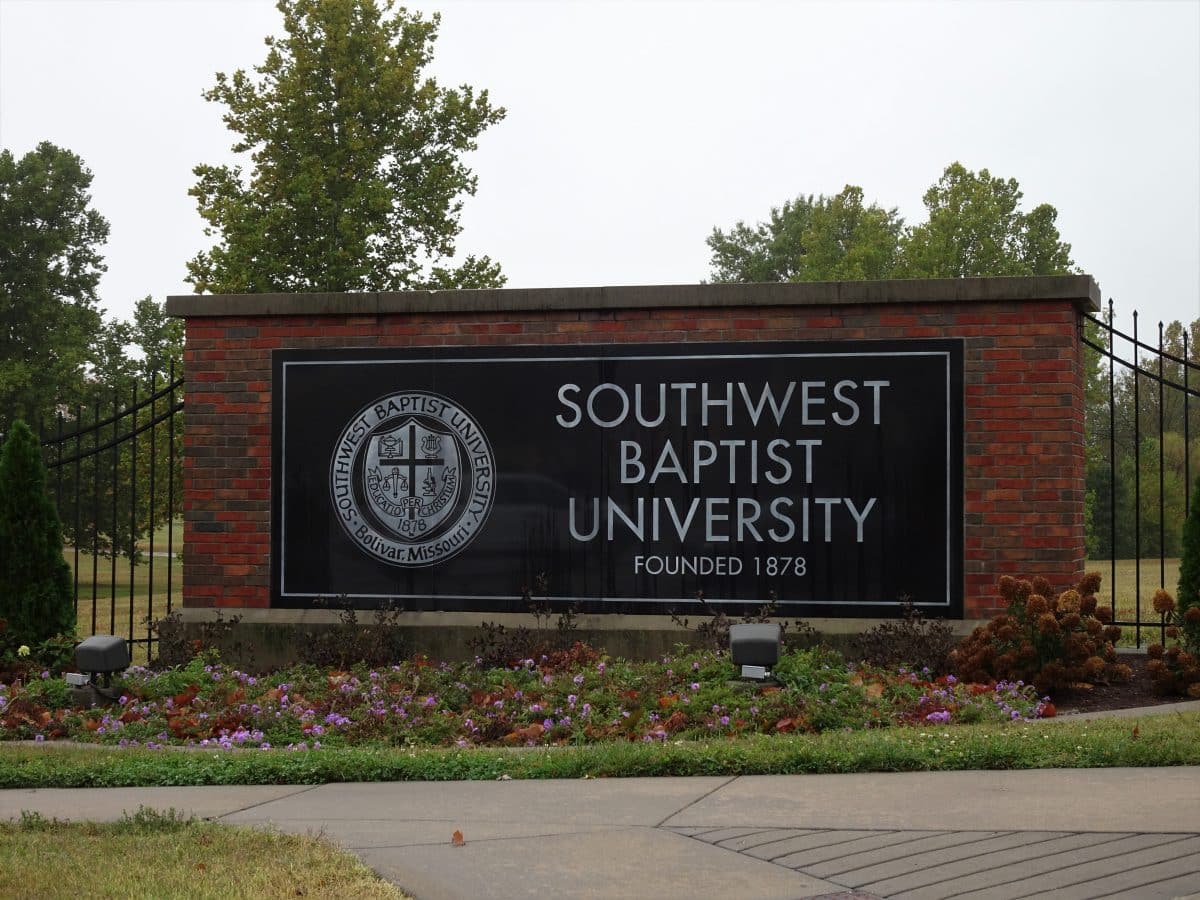
Two years after being placed on probation by its accrediting body, Southwest Baptist University’s accreditation status has been reaffirmed. The probation period for the school in Bolivar, Missouri, came after years of conflict over theology and control.
“The board determined that the Institution is no longer out of compliance with the Criteria for Accreditation and removed the Institution from probation. This action also resulted in a reaffirmation of the Institution’s accreditation,” the Higher Learning Commission wrote in a Nov. 8 letter to SBU President Rick Melson.
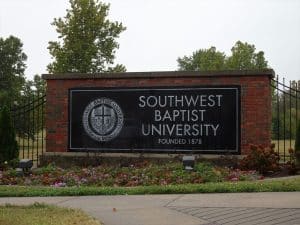
After a review earlier this year to assess SBU’s progress on addressing problems noted by the HLC in 2021, the HLC board of trustees voted on Nov. 2. Headquartered in Chicago, Illinois, the HLC accredits post-secondary educational institutions in 19 mostly midwestern states. It provides SBU’s only overall accreditation, though some individual programs have additional accreditation.
Melson celebrated the move in a statement on Nov. 8. The statement praised administration, faculty, staff, and board members who worked to get the school’s policies and practices in alignment with the accrediting criteria.
“I am incredibly proud of the SBU community for its display of excellence throughout this process and grateful to God for his kindness to SBU in this 10-year reaffirmation of our accreditation,” Melson said. “We are blessed with an extraordinary team of leaders at SBU.”
Although Melson mentioned a 10-year reaffirmation, the HLC’s letter to Melson explains the school will have its “next comprehensive evaluation for reaffirmation of accreditation in 2027-2028.” The HLC’s website explains that a school coming off probation “will be considered for Reaffirmation of Accreditation as part of the Year 4 comprehensive evaluation” in addition to another comprehensive evaluation and reaffirmation in Year 10. Additionally, the HLC’s letter notes there are a couple of limitations on the school for the next three years per HLC rules for schools coming off probation.
Like the letter two years ago, the HLC’s new letter explains the rationale for the decision. The new letter retraced areas previously mentioned as concerns to show SBU had now addressed them.
One significant issue had been a push by the Missouri Baptist Convention that SBU adopt new governing documents that named the MBC as sole corporate member and declared SBU trustees have a fiduciary responsibility to the MBC. SBU trustees voted to approve the new documents in 2020, which led to a complaint filed with the HLC that set in motion the process toward probation.
When Word&Way reported in 2020 that the moves could put SBU’s accreditation at risk, then-MBC Executive Director John Yeats attacked the reporting and insisted the HLC would close the inquiry as “unfounded.” However, after the 2021 HLC inquiry instead noted problems with the proposed new governing articles, SBU withdrew them (since they hadn’t gone into effect because of the legal advocacy of concerned community members). That move to withdraw the governing articles pushed by the MBC came just days after the board elected Melson to lead the school.
“The Institution’s board and the new president have clarified the relationship between the Missouri Baptist Convention relative to the autonomy of the board and rescinded the changes to its charter that would have given control to the Missouri Baptist Convention,” the HLC wrote this week. “The Institution’s board has taken steps to ensure it operates independently and autonomously in its decision-making, including the adoption of an updated conflict of interest policy that stresses independence and autonomy, and the implementation of robust board orientation and training.”
Another key issue that led to SBU’s probation was trustee interference in the promotion and tenure process that resulted in denials of advancement for multiple professors. Now, the HLC noted the school had made significant changes to prevent such actions from reoccurring.
“The Institution’s faculty senate and board approved and implemented changes to the Institution’s promotion and tenure processes to reconcile the previous lack of clarity and consistent practice in these areas,” the HLC wrote.
Relatedly, the HLC noted SBU’s changes to ensure greater academic freedom for faculty and a shift away from creedal requirements SBU’s board had created in 2020.
“The Institution has clarified its expectations relative to academic freedom within the context of its faith-based mission, identifying the centrality of a single statement of faith instead of three, which resulted in a new Statement on Academic Freedom that was approved by the Institution’s faculty senate and board,” the HLC wrote. “The Institution’s board has revised its Board Policy Manual; approved a new shared governance statement developed by the faculty senate and senior leadership; and engaged faculty in the creation, review, and endorsement of key institutional documents.”
Effective immediately, the HLC’s decision means SBU’s accreditation status is listed as “accredited” instead of “accredited (probation).” More significantly, it also means the school avoided the danger of a loss of accreditation, which would likely have been catastrophic to the institution’s survivability.
While SBU’s accreditation is now reaffirmed, another school affiliated with the MBC is only halfway through its two-year probation. Hannibal-LaGrange University in Hannibal received that designation from the HLC last year because of financial problems and poor trustee oversight.

